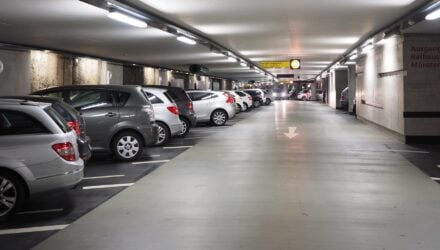
Commercial vehicles are booming. There are 3.8 million vans (goods vehicles below 3.5 tonnes in weight including their cargo) now registered in the UK, an increase of 74% since 1996. As a result, vans now represent 15% of all road traffic, and for many businesses, they represent a key part of operations and are responsible for driving day-to-day processes. But, not all businesses are up to speed with all the necessary specifications and legal requirements they need to make to make sure they and their van are legally compliant.
So, to help businesses, the commercial vehicle experts at LeasePlan UK has put together 10 important things you really need to know about CHOOSING, DRIVING & MAINTAINING your vans so they keep making you money, not losing it.
- NEVER PICK A VAN OUT OF HABIT
Driven a certain 3.5 tonne van for 20 years? Never wanted anything else? Think again. Vehicles are always evolving, and your business is too. So keep an open mind. Chances are there are options out there that make more sense for you today, in terms of tax, fuel efficiency and whole-life-cost – as well as tomorrow’s environmental legislation.
- PICK YOUR ACCESSORIES WISELY
If your van requires specialist equipment or accessories such as special racking or a tachograph, then it’s important to consider the impact this could have on the following:
- Time for build and delivery
- Safety
- Calibration
- Regular maintenance
Heavy add-ons will impact your fuel consumption (the second largest cost in a leased vehicle after the rental) and they’ll diminish your payload (this handy tool below might help).
How to calculate payload
Overloading is by far the most common infraction among commercial vehicles. So it’s crucial for business owners and fleet managers to know how to correctly calculate their payload.

- ALWAYS BE BRUTALLY HONEST ABOUT YOUR WEIGHT
What are you using your van for? Carrying serious amounts of bulk-bought anvils or taking fluffy new-hatched chicks to free-range bliss?
Weight isn’t something to be precious about: Compliance breaches can endanger your whole business and cost you much more than leasing a van made for the extra load.
- THINK ABOUT RESALE VALUE
It’s unlikely you’ll be driving your van forever. That means you’ll want to maximise the resale value at the end of its leasing life with you.
So while air con is usually a good idea and can add value, accessories that won’t stand the test of time like alloy wheels aren’t worth the extra investment. The upfront cost of a good accessory will often be offset by the increased resale value.
- KNOW YOUR DRIVERS AND YOUR DRIVERS’ DRIVING LICENCES
Unlike cars, commercial vehicles usually have multiple drivers, all of whom need the necessary training and the right categories on their licences to be covered by your insurance (this includes agency drivers).
On top of that, you need to keep track of the following to ensure your drivers are safe to drive the vehicle and don’t invalidate the insurance:
- Non-EU licences
- Changes to categories and legislation
- 10 year licence validation checks
- Updating drivers’ addresses
- LOAD RESPONSIBILITY
In the UK, penalties always come back to the drivers. They’re responsible for operating a vehicle according to the rules (e.g. overloading can cost the driver up to £1,000 in fines plus points on a license).
But that doesn’t mean you’re off the hook. Apart from company penalties, it might impact your licence to operate larger vehicles – and effectively endanger your ability to do business.
So educate your drivers on:
- Distribution of weight
- Load restraining skills
- Penalties
- Diminishing loads
- KNOW YOUR STATS
Use telematics to track what matters: you’ll know where your van is right now, who’s driving it and how much fuel it’s using. It helps you spot and address bad driving habits, improve safety and save fuel (a whopping 7-10% on average).
To find out more about telematics, how it works and how it can improve your fleet performance, watch this quick video.
- KNOW WHERE YOUR VAN LIVES
Where does your van spend the night? Is it safe to park there at night? Is the space big enough? Is it legal to park there? Will having your branding on the van actually do a disservice to your company if it sticks out like a sore thumb on your driver’s front porch or worse, implies to thieves there may be valuable tools inside?
- UNDERSTAND THE COST OF DOWNTIME
The breakdown of a commercial vehicle is more than a minor inconvenience, it is money lost, by the hour.
If your car breaks down, you can easily get a rental. But it’s next to impossible to quickly source a replacement for a specialist van that suits your requirements, holds all your tools and has your company livery on it.
A day off the road costs an average of £727 (and potentially a lot more, depending on your non-delivery penalties).
- SCHEDULE MAINTENANCE AROUND YOUR NEEDS
Does your garage have what it takes to get your van back on the road, quickly? Will they fit you in when it best suits your schedule AND prioritise you over fixing passenger cars, where downtime does not hurt business margins? Are they aware your tail lift needs greasing while they’re at it? Is their ceiling clearance high enough?
If not, don’t use them. When it comes to commercial vehicle maintenance, it’s okay to be a diva.
To find out more on managing and operating a commercial vehicle fleet, visit https://insights.leaseplan.co.uk/fleet-issues-commercial-vehicles/






